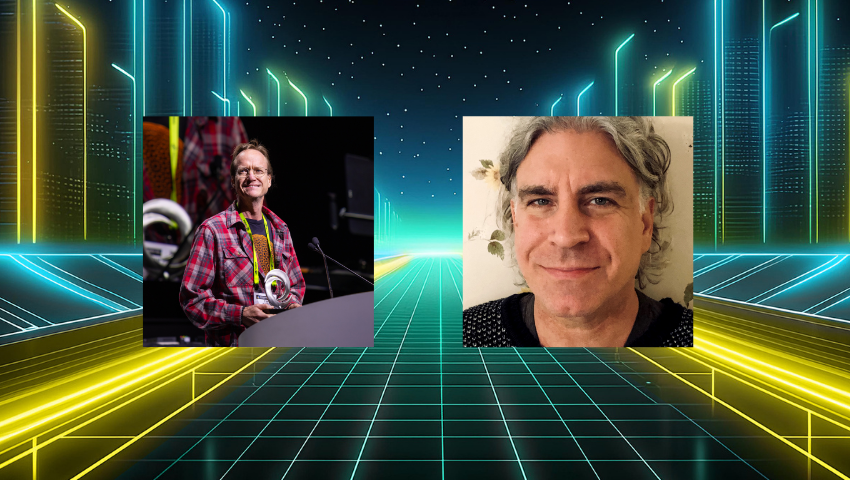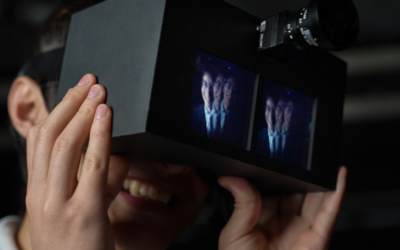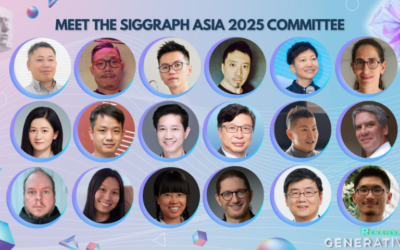Image credit from left to right: Tim McGraw, Angus Forbes
In this episode of SIGGRAPH Spotlight, SIGGRAPH 2024 Emerging Technologies Chair Angus Forbes welcomes SIGGRAPH 2024 Real-Time Live! Best-in-Show and Audience Choice Awards Winner Tim McGraw for an enriching conversation about his award-winning work and his passion for computer graphics. Tune in for a thrilling conversation that will leave you feeling inspired and excited about the future of computer graphics.
View the transcription of the podcast below:
Don’t miss a single episode by subscribing to the show on Apple Podcasts (iTunes), Spotify, Stitcher, SoundCloud, iHeartRadio, or Google Podcasts. If you like the show, leave us a review on iTunes to help other listeners find us!
Push the boundaries of what is possible at SIGGRAPH 2025! Create a lasting impact by submitting your next innovation to SIGGRAPH 2025 today to join us on the big stage in Vancouver.
About Our Guests

Angus Forbes’ interdisciplinary research in computational media focuses on topics in graphics and visualization, and recent projects include the creation of interactive tools for visualizing large simulation datasets, bio-inspired approaches to data reconstruction, and neural rendering architectures for temporally stable real-time denoising and supersampling. He received his Ph.D. from University of California, Santa Barbara’s Media Arts & Technology graduate program, and he previously served as SIGGRAPH 2018 Art Papers Chair and SIGGRAPH 2021 Art Gallery Chair. Angus is a member of NVIDIA’s Strategic Researcher Engagement team.

Tim McGraw is an Associate Professor of Computer Graphics Technology at Purdue University. His areas of interest are real-time graphics development, virtual reality and scientific visualization. He has previous industry experience as a Mechanical Engineer and as a game developer (Electronic Arts, Schell Games, Rainbow Studios). Tim received his Ph.D. in Computer and Information Science and Engineering from the University of Florida in 2005.



